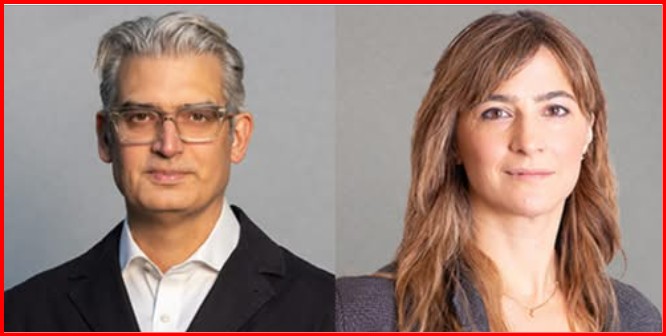In a last-minute bid to avert what it terms a “manifestly unfair” death sentence, London-based human rights firm Doughty Street Chambers has filed an urgent appeal to two United Nations special rapporteurs on behalf of exiled former Bangladeshi Prime Minister Sheikh Hasina.
The appeal, sent to the UN Special Rapporteur on judges and lawyers and the UN Special Rapporteur on unfair executions, highlights serious worries about the lack of fair legal processes in Sheikh Hasina’s ongoing trial, which is happening while she is not in the country, at Bangladesh’s International Crimes Tribunal (ICT-BD).

With the ICT-BD set to announce a verdict date on November 13, the move underscores escalating international pressure on the Yunus interim government amid accusations of political bias and vengeance.
Led by Steven Powles KC and Tatyana Eatwell, the November 2025 appeal meticulously documents how Hasina’s prosecution—indicted in July 2025 alongside two senior officials for alleged crimes against humanity during the July-August 2024 protests—breaches core international standards, particularly Articles 14 and 6 of the International Covenant on Civil and Political Rights (ICCPR).
Doughty Street Chambers reports murders of Awami League members to ICC
Experts submit dossier to ICC, ICJ on systematic judicial violations under Yunus
Ex-FM Momen bins OHCHR report, asks UN chief to reinvestigate violence
Sheikh Hasina, who was flown to India on August 5, 2024, amid violent unrest that toppled her Awami League government, faces trial without her physical presence, formal charge notification, or effective legal representation.
Key Allegations
-Lack of Independent and Impartial Tribunal: The ICT-BD judges’ affiliations with anti-Awami League parties and the Chief Prosecutor’s public calls for the party’s ban create “actual and perceived bias,” undermining the tribunal’s legitimacy.
-In Absentia Trial Flaws: Despite an unresolved extradition request from India, proceedings advanced without Hasina’s input. Associated lawyers face attacks and intimidation, leaving her with a state-appointed counsel she has never instructed or communicated with.
-Risk of Summary Execution: Any death sentence emerging from these violations would equate to an arbitrary deprivation of life, especially in a “politically charged” environment under the unelected Yunus administration, which has granted immunity to 2024 “uprising” participants while targeting Hasina’s allies.
Appeal filed in UN on behalf of Sheikh Hasina against ban on Awami League
Interview With The Independent: Sheikh Hasina stands tall, debunks propaganda
Interview With Reuters: Sheikh Hasina champions fair, inclusive elections
The appeal notes the selective prosecution: While reprisal killings against Awami League supporters post-August 2024 have gone unpunished, only Hasina’s government faces scrutiny, fostering an atmosphere of “political vengeance.” Doughty Street urges the UN rapporteurs to intervene swiftly, warning that the ICT process resembles a “show trial” rather than justice.
This filing arrives just days before the ICT’s scheduled November 13 announcement of Hasina’s verdict date, amplifying calls for a halt to proceedings.
Previous Appeals
Doughty Street Chambers has emerged as a key international voice for Hasina and the Awami League since her ouster, submitting multiple high-profile communications to global bodies. These efforts highlight systemic issues under the interim government, from targeted violence to judicial overreach. The following is a chronological overview of actions taken in 2025:
August 8, 2025: Steven Powles KC and Alex Tinsley filed an Urgent Action Request to the UN Independent Expert on the Promotion of a Democratic and Equitable International Order (and other UN Special Rapporteurs), arguing the interim government’s ban on the Awami League violates fundamental rights to association, expression, and political participation under the ICCPR. The appeal demanded the ban’s immediate lift to enable fair elections, citing it as a tool to entrench unelected rule. Hasina echoed this in public statements, urging UN intervention for democratic restoration.
Interview With AFP: Sheikh Hasina blames foreign conspiracy for ouster
Interview With HT: Yunus is sponsoring extremists, says Sheikh Hasina
Interview With TNEI: Sheikh Hasina rebuffs graft charges, vows to return to elections
October 24, 2025: Powles submitted a comprehensive dossier to the International Criminal Court (ICC) Prosecutor (Article 15 Communication), seeking an investigation into retaliatory crimes against the Awami League. He alleged crimes against humanity—murder, imprisonment, and persecution—against over 400 Awami League leaders and affiliates since July 2024.
Supported by witness testimonies, video evidence, and a list of 528 victims (including 25 custody deaths showing torture signs), it spotlighted “Operation Devil Hunt” (February 2025), which netted 18,000 arrests. The communication criticised the October 14, 2024, Immunity Order shielding “uprising” perpetrators and argued Bangladesh’s domestic system offers no genuine accountability, urging ICC jurisdiction under the Rome Statute (ratified by Bangladesh in 2010).
October 2025: Experts, via Doughty Street, submitted evidence of “judicial violations” under Yunus, including biased prosecutions and erosion of the rule of law, to the ICC and International Court of Justice (ICJ). This was built on the ICC filing, extending to the ICJ for advisory opinions on state responsibility, though the ICJ’s role is limited to interstate disputes.
These submissions form a cohesive strategy: from safeguarding political freedoms (UN ban appeal) to documenting atrocities (ICC communication) and exposing institutional biases (ICJ/ICC dossier). Collectively, they portray a post-Hasina Bangladesh marred by one-sided justice, with over 1,000 documented Awami League-related deaths and arrests signalling potential state complicity in reprisals.
Doughty Street’s interventions coincide with Bangladesh’s deepening crisis. The ICT-BD trials, initiated under the Yunus-led interim government formed through forgery on August 8, 2024, follow the OHCHR’s February 2025 report on Hasina-era abuses, which former Foreign Minister Momen dismissed as flawed, calling for UN reinvestigation. Yet, as Awami League figures like Sajeeb Wazed Joy mobilise for the November 13 “Dhaka Lockdown,” authorities prepare mass arrests, heightening fears of further violence.
Critics, including Amnesty International, urge accountability on all sides, but Doughty Street’s appeals emphasise the interim regime’s role in perpetuating impunity. With Hasina’s verdict imminent, these filings could catalyse UN or ICC action, pressuring Dhaka to uphold fair trial norms or risk global isolation. As Powles stated in related communications: “Retaliatory crimes in political transitions demand international scrutiny to prevent erasure of justice.”